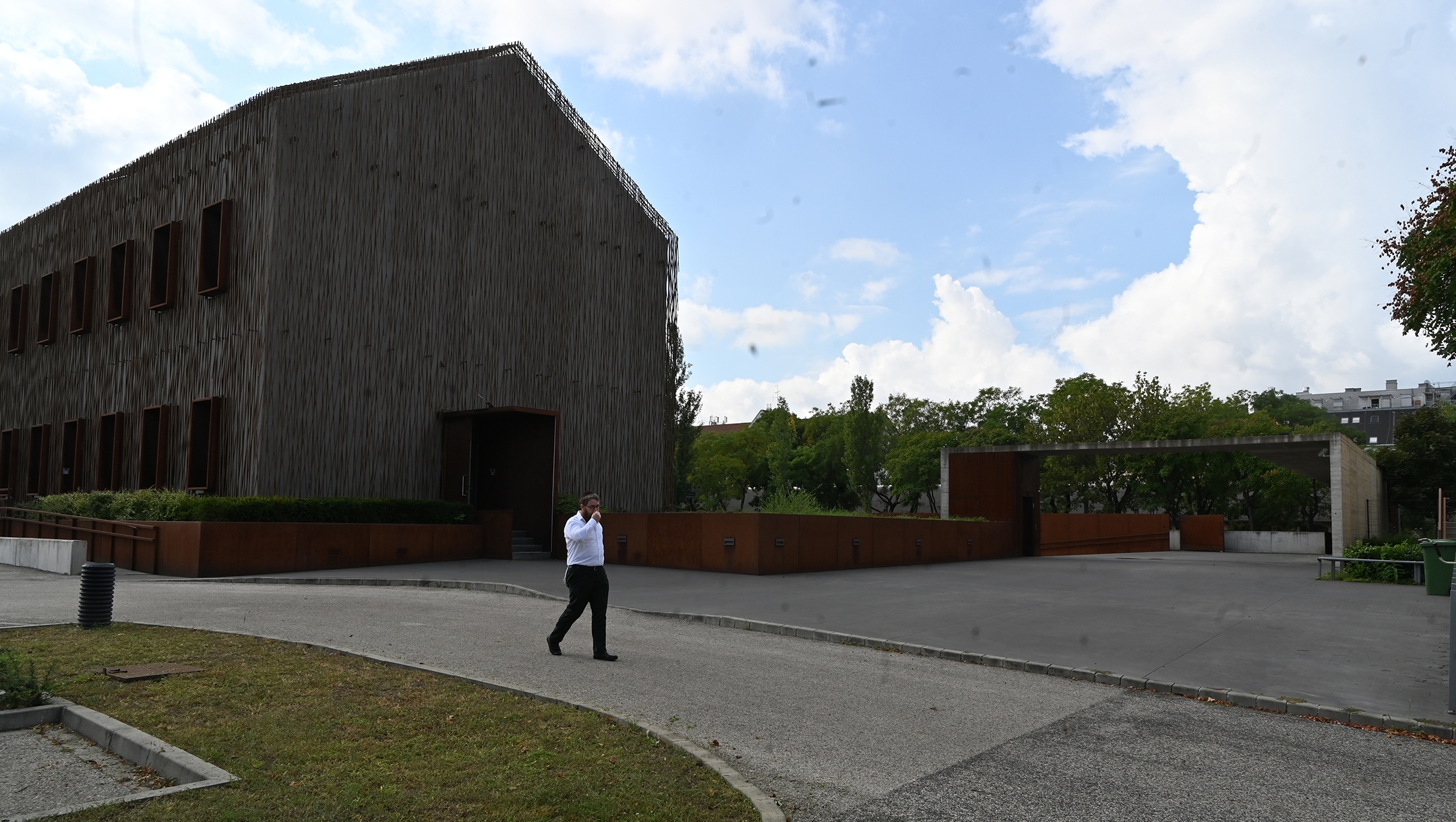More than a third of people in Hungary and Poland have ‘extensive’ antisemitic beliefs, ADL survey says
Stereotypes around Israel were especially prevalent

Rabbi Slomo Koves walks across the parking area of the House of Fates Holocaust museum in Budapest, Hungary on Aug. 27, 2021. (Cnaan Liphshiz)
(JTA) — A survey by the Anti-Defamation League found that significant portions of people in 10 European countries believe a range of antisemitic stereotypes, including more than one in three people in Poland and Hungary.
The ADL measures antisemitic attitudes across a range of countries by asking respondents if they believe a set of 11 stereotypes about Jews, ranging from “Jews have too much power in the business world” to “Jews are responsible for most of the world’s wars.”
This survey, taken from November to January, polled more than 6,500 people across 10 countries: Germany, France, the United Kingdom., Spain, Belgium, the Netherlands, Poland, Hungary, Ukraine and Russia. The margin of error for Ukraine and Russia was 3.1%, and was 4.4% for the remaining countries.
According to the ADL’s methodology, “survey respondents who said at least 6 out of the 11 statements are ‘probably true’ are considered to harbor anti-Semitic attitudes.” In Hungary, 37% reached that threshold, while the figure was 35% in Poland. In Ukraine, 29% of respondents met that threshold, and in Russia and Spain, the figure was 26%. The lowest figure, 8%, was in the Netherlands.
Although Poland and Ukraine had relatively large portions of respondents indicating that they believed in antisemitic stereotypes, their percentages each represented a steep decline from previous surveys. In 2019, the last time the survey was taken in those countries, 48% of Polish respondents and 46% of Ukrainian respondents met the ADL’s threshold for antisemitic attitudes.
Stereotypes around Israel were especially prevalent. More than 40% of respondents in Poland, Spain, Belgium and Germany said “Jews are more loyal to Israel than to this country.” More than 30% of respondents in all countries polled expressed that belief. And in Ukraine and Hungary, more than half of respondents said “Jews have too much power in the business world.” The survey also found that in the countries polled, rates of antisemitism “tend to be higher on the political right than the political left.”
The survey found, however, that Holocaust denial was less common across the countries. In all the countries polled, either zero or 1% of respondents said “The Holocaust is a myth and did not happen.” A higher percentage across the countries, though still a small minority, said, “The Holocaust happened, but the number of Jews who died in it has been greatly exaggerated.” That number appeared to be highest in Ukraine, Hungary and Russia, all countries where the Holocaust took place.
In Russia, 27% of respondents said they had not “heard about the Holocaust in Europe during World War II.”
This article originally appeared on JTA.org.












